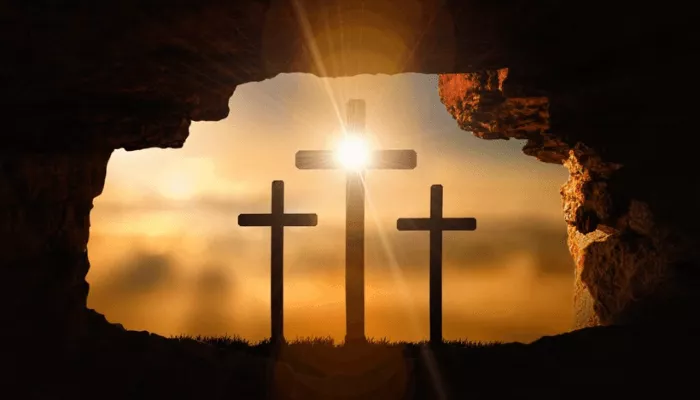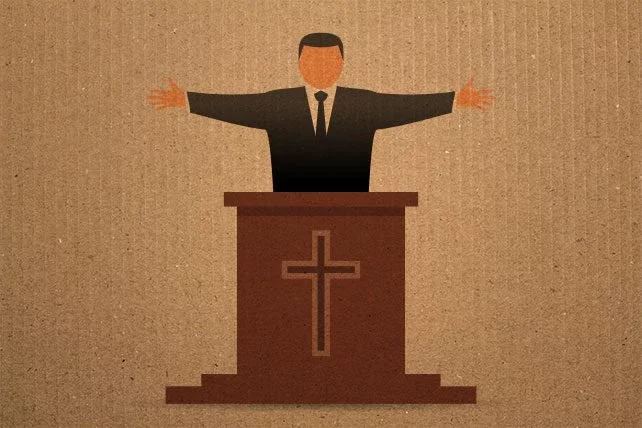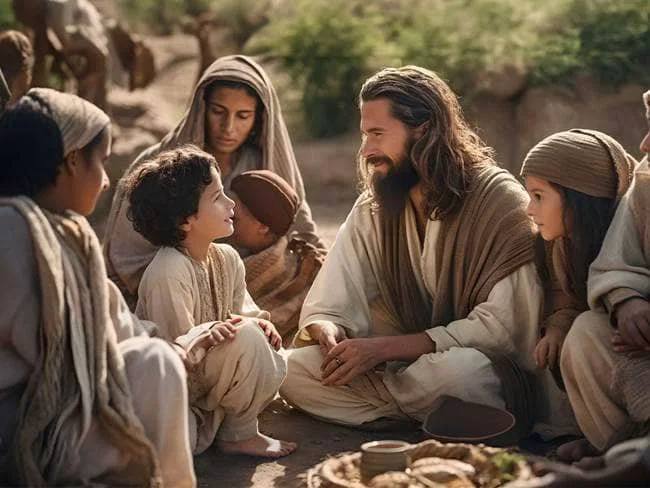People often confuse the two events.

One of the biggest misconceptions about prophecy is the difference between the Second Coming and the Rapture. The two events are often confused, but they are two different events on God's prophecy timeline. Let's break down the two events, then discuss the difference between the two.
What is the rapture?
The term "rapture" doesn't appear in the Bible. The word derives from a Latin phrase meaning "a transport, carrying off, or a snatching away." The idea of the rapture of the church is discussed in scripture. The church's rapture is when God takes believers from the earth, so His judgment can be poured over the world during the tribulation period. Its description comes in 1 Corinthians 15:50-54 and 1 Thessalonians 4:14-18.
God will revive His dead believers, give them heavenly bodies and remove them from the earth. He'll also take His living believers, who will also receive glorified bodies. 1 Thessalonians 4:16-17 says that the Lord will ascend from heaven with a loud command, the trumpet call of God, and the archangel's voice. The dead will rise first, then the living, and everyone left will come together in the clouds to meet the Lord and be with Him forever. The rapture will instantly transform our bodies to fit us for eternity. 1 John 3:2 reminds us that when Jesus appears, we will be like Him, seeing Him as He is.
The Old Testament doesn't teach the rapture doctrine, so Paul describes it as a mystery now revealed in 1 Corinthians 15:51-52. He says that we won't sleep but be changed in the twinkling of an eye. The trumpet will sound, the dead will rise, and we'll be changed. The rapture is God's way of protecting His people from the tribulation, the seven years of judgment that will pour over the earth. Some argue that the tribulation period will start before the rapture. However, the Bible says that those who believe in Jesus won't face condemnation. At the end of the seven years, Jesus returns for His second coming.
What is the second coming?
The second coming of Jesus is the believer's hope that God is in control and faithful to the prophecies and promises in the Bible. Christ came to earth as a baby in Bethlehem in His first coming, as was prophesied. He fulfilled numerous prophecies of the Messiah during His birth, ministry, life, death, and resurrection. However, there are some prophecies that He hasn't fulfilled yet, but His second coming will fulfill the remaining prophecies. Jesus was a suffering servant in His first coming, arriving in the humblest of circumstances. However, in His second coming, Jesus will appear as the conquering king, arriving with the armies of heaven on His side.
Prophets in the Old Testament didn't clearly distinguish between the first and second comings, as seen in Zechariah 14:4 and Isaiah 7:14. Because the prophecies seem to discuss two different people, some Jewish scholars thought thee would be a conquering and suffering Messiah. However, what they don't realize is there's only one Messiah who would fulfill both roles. Isaiah 53 describes Jesus fulfilling the role of suffering servant, while Revelation 1:7 and Zechariah 12:10 describe the second coming. Israel and the world will mourn that they didn't accept the Messiah during His first coming.
After Jesus ascended into heaven, the angels told the apostles that the same Jesus who was taken into heaven would come back in the same way. Zechariah 14:4 says the site of the second coming will be the Mount of Olives. Matthew 24:30 says at the time of the second coming, Jesus will appear in the sky, and the world will mourn. They will see Jesus coming on the sky's clouds with great glory and power. Titus 2:13 says the second coming will be a "glorious appearing." Revelation 19:11-16 describes the second coming in excellent detail.
What's the difference between the two?
The second coming and the rapture are often mistaken. It's challenging to determine whether a scripture discusses the second coming or the rapture. However, it's essential to differentiate the two, especially in studying end-times Bible prophecy. The rapture is when Jesus returns to take all His believers from the earth. Dead believers will be resurrected alongside living believers, and the groups will meet the Lord in the sky. As Paul described, this event will occur in a flash or twinkling of an eye.
On the other hand, the second coming is when Jesus returns to earth to conquer the Antichrist, destroy evil, and establish His kingdom. The key differences between the two events are believers will meet the Lord in the air during the rapture, while believers come back to earth with the Lord during the second coming. While the rapture happens before the tribulation, the second coming occurs after the great tribulation. The second coming involves removing unbelievers as an act of judgment, while the rapture removes believers from the earth to deliver them. Everyone will be able to see the second coming, but the rapture will be instant and a secret. The rapture can happen at any moment, but Jesus' second coming won't happen until after other end-time events happen.
Why is it important to differentiate the two?
If the second coming and the rapture are the same events, believers will go through the tribulation. It would also mean that Jesus' return isn't imminent and that many things must happen before He returns. While describing the tribulation period, Revelation chapters six through 19 don't mention the church. During the tribulation, God will turn His immediate attention to Israel.
The second coming and the rapture are similar but separate events. Both are end-times events and involve Jesus' return. However, it's essential to understand the differences. The second coming is when Christ returns to the earth to end tribulation and conquer the Antichrist. The rapture is when Jesus removes all of His believers from the world before the time of God's wrath. Both events involve Jesus' return, but one describes Jesus taking His believers to heaven with Him.















Comments